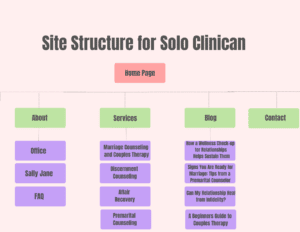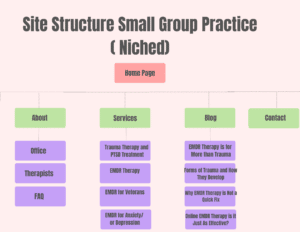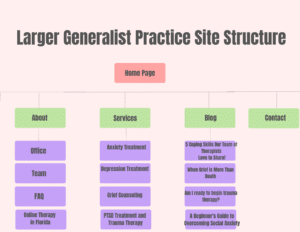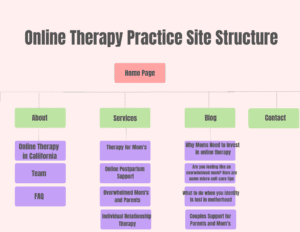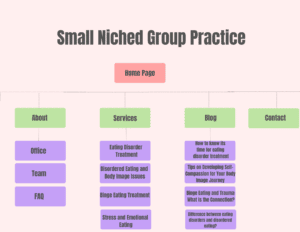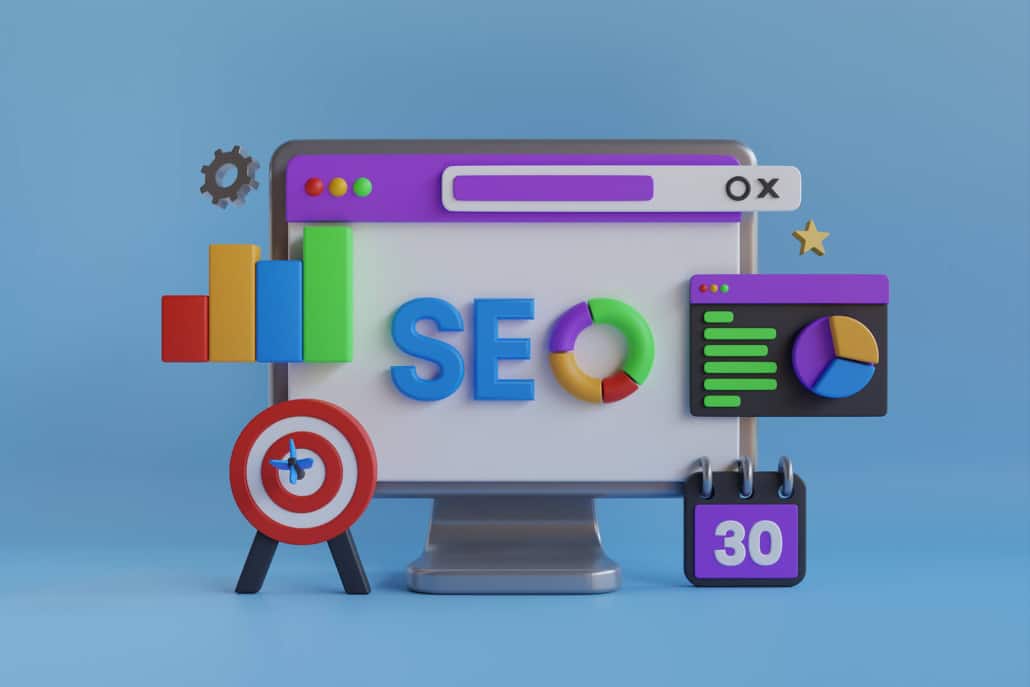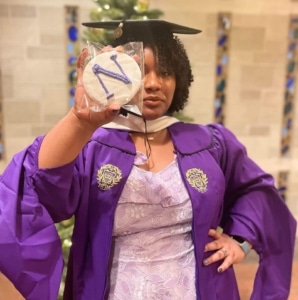Cybersecurity is the practice of protecting systems, networks, and data from digital attacks. It involves a range of strategies and technologies designed to protect information against unauthorized users, data breaches, and other threats that could compromise its confidentiality. Cybersecurity stands as the shield that protects your practice’s invaluable digital information. As mental health professionals, personal injury lawyers, and functional medicine doctors, your online presence, client information, and sensitive data are the lifeblood of your practice. Let’s delve deeper into simplified cybersecurity strategies tailored specifically to fortify your practice against potential digital threats. Our SEO specialists at Simplified SEO Consulting are here to help!
Understanding Cybersecurity: Safeguarding Your Digital World
Cybersecurity Basics Simplified:
At its core, cybersecurity involves fortifying your digital boundaries against potential threats. This means protecting your practice’s systems, networks, and the confidential information of your clients from malicious digital attacks. Think of it as establishing a digital fortress—a secure space that defends against intruders.

Identifying Common Threats:
Phishing: Guarding Against Deceptive Emails
Phishing attacks often disguise themselves as legitimate emails to deceive recipients into revealing sensitive information. These deceptive emails might appear genuine, but they aim to trick you into clicking on malicious links or providing personal data. Always be cautious of unusual sender addresses, unexpected requests for sensitive information, or messages containing urgent or threatening language.
For instance, a mental health professional might receive an email seemingly from a client, urgently requesting sensitive information. Upon closer inspection, the email address might seem slightly off or unfamiliar, signaling a potential phishing attempt.
Malware: Keeping Your Systems Safe
Malware encompasses many harmful software, including viruses, worms, Trojans, and rootkits. These malicious programs can infect your systems, disrupt operations, and compromise sensitive data. Signs of a malware attack may include slow computer performance, unexpected pop-ups, or sudden system reboots.
For instance, a personal injury lawyer might notice their computer slowing down significantly or encountering unexpected pop-ups while accessing legal documents, indicating a possible malware infection.
Ransomware: Defending Against Data Hostages
Ransomware is a particularly malicious form of malware that encrypts data and demands a ransom for its release. It can bring operations to a standstill and severely impact business continuity. Signs of a ransomware attack include inaccessible files, ransom demands, and system lockout messages.
A functional medicine doctor might encounter a situation where vital patient health records become encrypted and inaccessible, accompanied by a message demanding a ransom for decryption—a clear indication of a ransomware attack.
Social Engineering: Protecting Your Trust
Social engineering involves manipulating individuals to divulge sensitive information. This could include tactics like pretexting, baiting, or making unsolicited calls or emails to extract confidential data. Always be cautious of unsolicited requests for personal or confidential information, especially those accompanied by offers that seem too good to be true.
Consider a scenario where a mental health professional receives an unexpected call requesting sensitive patient information under the pretext of conducting a survey. Such unsolicited calls should raise red flags, indicating a potential social engineering attempt.
SEO Spam: Preventing Online Reputation Damage
SEO spam involves injecting illicit content into websites to manipulate search engine rankings or redirect traffic. Signs of SEO compromise may include sudden drops in website rankings, unknown content or links on the website, or alerts from search engines about potential site compromises.
A functional medicine doctor might notice unexpected changes in their website’s traffic patterns or receive warnings from search engines about the site’s compromised integrity, signaling potential SEO spam attacks.

Understanding the Impact: What Cyber Attacks Mean for Your Practice
Financial Impact:
The financial repercussions of a cyber attack can be substantial. For mental health professionals, personal injury lawyers, and functional medicine doctors, such financial implications could significantly affect the practice’s operations. A cyber attack can result in Immediate financial losses stemming from various factors. These might include the cost of investigating the breach, restoring compromised systems, and potential legal fees incurred in addressing the aftermath. In severe cases, ransomware attacks, where hackers encrypt data and demand payment for its release.
Business Consequences:
Beyond financial losses, cyber attacks can lead to a loss of client trust and credibility, potentially resulting in a decrease in clients or revenue. After a cyber-attack has taken place, there needs to be significant trust gained back with clients. Maintaining trust in mental health, legal services, or medical practice is pivotal for sustaining business operations.
Human Error:
Surprisingly, a considerable 82% of cybersecurity breaches stem from human error. Understanding and mitigating these errors through regular training and awareness can substantially reduce vulnerabilities in your practice.
Tailored Risks for Mental Health Professionals, Lawyers & Doctors
Sensitive Data Protection: For mental health professionals, protecting patient confidentiality is paramount. Similarly, personal injury lawyers handling sensitive legal information or functional medicine doctors safeguarding patient health records must ensure robust security measures to protect this invaluable data.
Website Security: Securing your practice’s website involves implementing measures such as HTTPS encryption, regularly updating plugins and themes, and ensuring robust platform security to prevent potential breaches.
Creating a Cybersecurity Culture: Everyone’s Responsibility
Regular Training: Educating your entire team about cybersecurity measures and best practices is pivotal. Simple training sessions can empower your team to identify and address potential threats effectively.
Establishing Clear Policies: Establishing and reinforcing clear cybersecurity policies within your practice sets a standard for security practices and helps create a unified approach to cyber defense.

Creating Strong Passwords: Safeguarding Your Online Vaults
Just like protecting your clients’ confidential files, your passwords act as powerful shields safeguarding your online treasures. Ensuring these shields are strong is crucial to keep cyber threats at bay. Here’s how you can craft a robust password that’s tough for cyber intruders to crack:
Uniqueness Matters: Imagine your password as a confidential code that’s uniquely yours. Avoid using common or easily guessed terms like birthdays or simple words. Instead, blend special symbols, upper and lower-case letters, and numbers. You could combine significant dates, personalized phrases, and unique symbols to make it strong and exclusive.
Length and Complexity: Long passwords serve as mighty barriers against hackers. Aim for a password that’s at least 12 characters long. Think of it as your secret formula! Mix in unusual words or phrases that hold meaning for you but remain hard for others to figure out. And remember, each account needs its exclusive key—avoid using the same password everywhere.
Embrace Change: Just as you update your professional skills, refreshing your password regularly adds an extra layer of protection. Changing your password every few months fortifies your accounts against unwanted access.
Want to Learn More Cybersecurity & SEO Tricks?
Your password is the guardian of your digital vault, much like your dedication to protecting your clients’ information. By crafting robust and distinctive passwords, you’re fortifying your online stronghold, keeping sensitive data secure from prying eyes. Want to boost your visibility while keeping your data safe? Explore the powerful synergy of SEO and cybersecurity. Safeguard your website against cyber threats while optimizing it to rank higher in search engines. Follow these steps to get started!
- Schedule a free consultation here.
- Meet with an SEO Specialist.
- Keep your accounts safe and rank higher on Google!
Other Services Simplified SEO Consulting Offers:
Simplified SEO Consulting offers a range of services to help you improve your website’s online presence. We offer Done For You SEO Services and DIY Online SEO Courses, which are customized to enhance your search engine rankings and attract your ideal clients. We also have a 12-week Done With You Intensive Program for comprehensive training. Our Content Networking service can help you boost your online presence and attract more of your ideal clients. Check out our blog for more tips and guides on SEO.

About the Author
Olivia Ferguson graduated from Central Michigan University with her Bachelor’s degree in Social Work. With a prior history in crime victim advocacy, this brought her great knowledge of the legal justice system and the mental health profession. Connecting those tools together, her goal is to help individuals reach their ideal clients by improving their online presence and rankings with SEO.

 About the Author, Winnie A Mental Health SEO Specialist
About the Author, Winnie A Mental Health SEO Specialist If you are a trained EMDR therapist in Denver, Colorado, you might choose to optimize a page of your website on virtual EMDR therapy, a page on trauma therapy and PTSD treatment and three supporting blog posts: “Benefits of EMDR for Trauma Therapy”, “EMDR Therapy for PTSD Treatment”, and “Creative Ways EMDR Therapy Can Help Denver, CO Locals”. After going through our Masterclass (the DIY Top of Search Engines Course), you’ll start to implement some of the SEO concepts yourself. Then, during our small group Mastermind sessions, I can pull your website up as an example to provide feedback, live review and what we call “SEO 2.0” for one of those pages. This benefits you AND the trauma therapist in Texas who has recently opened a new Plano location. They are able to take the live review feedback and apply it to their website. And so on, and so on.
If you are a trained EMDR therapist in Denver, Colorado, you might choose to optimize a page of your website on virtual EMDR therapy, a page on trauma therapy and PTSD treatment and three supporting blog posts: “Benefits of EMDR for Trauma Therapy”, “EMDR Therapy for PTSD Treatment”, and “Creative Ways EMDR Therapy Can Help Denver, CO Locals”. After going through our Masterclass (the DIY Top of Search Engines Course), you’ll start to implement some of the SEO concepts yourself. Then, during our small group Mastermind sessions, I can pull your website up as an example to provide feedback, live review and what we call “SEO 2.0” for one of those pages. This benefits you AND the trauma therapist in Texas who has recently opened a new Plano location. They are able to take the live review feedback and apply it to their website. And so on, and so on. Between sessions, I highly encourage participants to get together with other professionals and colleagues from the group for coworking. Apply the concepts from the course together. Live review and feedback is an absolute gift that you can give each other during these times. Is something unclear? Talk about it! Have a suggestion? Don’t hold back. We’re all learning together. So, there’s no fear of looking dumb. No point in holding onto imposter syndrome. We’re all in this together. The other beautiful part of this SEO group training program is that the practice owner doesn’t have to be the person going through the training. You can send a Marketing Manager, a dedicated Virtual Assistant, or another therapist in the practice to learn and implement the concepts. In fact, this has been a wonderfully successful strategy for larger group practices who know they need to step up their marketing and SEO efforts.
Between sessions, I highly encourage participants to get together with other professionals and colleagues from the group for coworking. Apply the concepts from the course together. Live review and feedback is an absolute gift that you can give each other during these times. Is something unclear? Talk about it! Have a suggestion? Don’t hold back. We’re all learning together. So, there’s no fear of looking dumb. No point in holding onto imposter syndrome. We’re all in this together. The other beautiful part of this SEO group training program is that the practice owner doesn’t have to be the person going through the training. You can send a Marketing Manager, a dedicated Virtual Assistant, or another therapist in the practice to learn and implement the concepts. In fact, this has been a wonderfully successful strategy for larger group practices who know they need to step up their marketing and SEO efforts.









